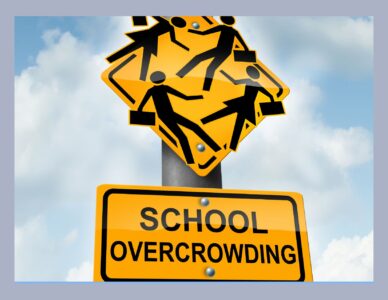IPE/BC is an independent, non-partisan organization, however we recognize that IPE/BC Fellows and guest authors hold a range of views and interests relative to public schools, education issues, and the political landscape in BC. Perspectives is an opportunity for Fellows and others to share their ideas in short, accessible essays.
Gone forever- the folly of selling off public school properties
by Rory Brown
September 12, 2024
One of the downstream effects of the disastrous public education policies of the BC Liberal era is the pressure on school districts to sell off  school land deemed ‘surplus.’ The BC Liberals closed 267 schools during their tenure, and K-12 funding fell to all-time lows. They also created a program (that still exists) to sell property deemed ‘surplus.’
school land deemed ‘surplus.’ The BC Liberals closed 267 schools during their tenure, and K-12 funding fell to all-time lows. They also created a program (that still exists) to sell property deemed ‘surplus.’
Currently, BC has again fallen to ninth place for provincial funding in Canada for K-12 public education, and the pressure on local school boards to generate funds through the sale of the family silver (school board and provincially owned land) continues unabated. Like many things in Public Education, the devil is in the details, and we’d all do well to pay close attention to decisions of local school boards when it comes to declaring school lands surplus and especially if there is consideration to sell school lands.
With an astonishing number of schools that need repairs across the province, the temptation to fund new school buildings through the sale of land is keen, yet ultimately foolish and irresponsible. It’s never a good idea to move publicly owned assets into private hands completely and forever. There are always creative and innovative ways that school lands can be used (even to generate income) yet still be kept in the public domain, preserving the perpetual endowment of public assets.
 The trouble of course is that much of this land isn’t really surplus and is almost always needed in the future. With the ever-upward march of land values, school properties that are sold are gone forever- unattainable and unaffordable when needed back. Where land values are highest, the pressure to sell land is greatest, and the public has the greatest amount to lose in this folly. In Vancouver, the site of the current Wall centre, worth likely hundreds of millions, was formerly the site of a school.
The trouble of course is that much of this land isn’t really surplus and is almost always needed in the future. With the ever-upward march of land values, school properties that are sold are gone forever- unattainable and unaffordable when needed back. Where land values are highest, the pressure to sell land is greatest, and the public has the greatest amount to lose in this folly. In Vancouver, the site of the current Wall centre, worth likely hundreds of millions, was formerly the site of a school.
Worth remembering as well is the obligation of local and provincial governments to consider, consult and seek permission from Indigenous host nations in the disposal and sale of public land that in almost all cases was never ceded away. There are moral and legal prerogatives that are thrown to the wind when public land is sold – usually to land developers whose profit motivation is not in the best interest of the public and certainly not in the best interest of future school-aged children.
 In Surrey district, where the population of school-aged children is exploding, the lack of land set aside for new schools is felt keenly as the district packs more and more students into existing schools – many in portable buildings. In Vancouver, where land values are high, schools are in poor repair and some buildings have excess capacity, largely created by the lack of family housing stock in the city, something likely to change in the future as the calls for increased density come from all political camps. North Vancouver district closed and sold many elementary schools during the last twenty years and parents in the district are now desperate for spaces as the density of school-aged children increases past capacity and projections.
In Surrey district, where the population of school-aged children is exploding, the lack of land set aside for new schools is felt keenly as the district packs more and more students into existing schools – many in portable buildings. In Vancouver, where land values are high, schools are in poor repair and some buildings have excess capacity, largely created by the lack of family housing stock in the city, something likely to change in the future as the calls for increased density come from all political camps. North Vancouver district closed and sold many elementary schools during the last twenty years and parents in the district are now desperate for spaces as the density of school-aged children increases past capacity and projections.
We’d all do well to pay close attention to the decisions of local boards when they contemplate the removal of public land from the public endowment. It’s penny-wise but pound-foolish and has implications for many decades to come.
Rory Brown is an IPE/BC board member and long-time public education teacher, advocate and activist. He is currently a member of the BCIT faculty in the Mechanical Engineering Department, Technology Teacher Education Program.


